7 Best Baby Thermometers to Have on-Hand for Sick Kids
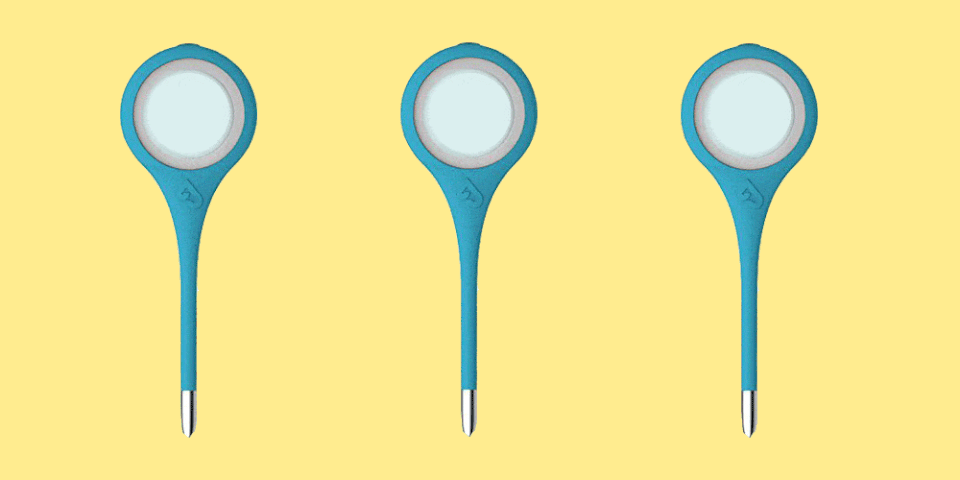
7 Best Baby Thermometers to Have on-Hand for Sick Kids
When your baby falls under the weather, a baby thermometer makes it a little easier to decide if you should call the doctor or wait it out. But with so many options available online and at local drug stores, how can you tell which thermometer is right for you and your little one? The experts at the Good Housekeeping Institute include many moms and dads, so we feel your pain. With decades of testing experience and parenting wisdom, our experts are here to help make sense of this all-important purchase decision.
What are the different types of baby thermometers?
The first thing to know is that all baby thermometers must meet federal standards, so as long as you buy the device from a reputable retailer, there’s no risk of picking one that could cause unintended harm. It’s just a matter of matching the right thermometer for your present needs:
- Rectal thermometers are extremely accurate and are a good choice for newborns.
- No or low-contact ear and forehead thermometers are often quite accurate, are a safe, easy-to-use option once your baby passes the six-month mark.
- Then there’s the latest innovation, smart thermometers, which use WiFi-enabled patches and other connected technology to let you track temperatures remotely and continuously via a smart phone app.
Choosing the best baby thermometer
As with all health-related products, from baby monitors to fitness trackers, our testers evaluated the latest batch of baby thermometers with real-world scenarios in mind. Key considerations included:
- Precision and speed of measurements, for those anxious moments in the middle of the night when all you want is a fast, accurate read.
- Ease of use: They also considered how easy each thermometer is to use, read and clean, considering how challenging it is tending to a sick child.
- Reading time: Some thermometers deliver quicker results than others — these days, many provide readings within just a few seconds.
- Multi-use design: While some thermometers are designed for one specific use, several brands offer thermometers for oral, rectal and underarm use.
- Hands-free options: Some ear thermometers feature a contactless, touch-free design.
Keep in mind that your baby's age is a big factor in determining how to deal with a fever. "For a baby less than six weeks of age, any fever of 100.4 degrees or higher is concerning, so call your doctor or have the baby seen immediately," says Katherine Williamson, CHOC pediatrician and spokesperson with the American Academy of Pediatrics. For babies under six months, seek medical attention with fevers over 102 degrees, or if they run any fever for more than 24 hours. After that, it's important to consider a fever in the larger context. "If a toddler has a mild fever, but they're eating and otherwise happy, that's not an immediate cause for concern," says Williamson. "But if they're also listless or screaming in pain, they need to be seen right away."
In the end, our experts found many baby thermometers that deliver fast, repeatable and easy-to-understand readouts, without sacrificing comfort. Read on to find the best baby thermometer for you, based on testing, in-home use and online reviews.
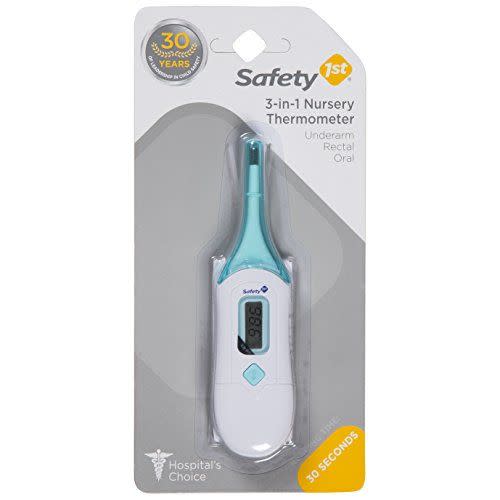
1) 3-in-1 Nursery Thermometer
Safety 1st
amazon.com
$4.99
More than 1,000 Amazon reviewers stand behind this under $5 option, and our Lab experts do too! It offers up accurate readings and is extremely versatile, designed for oral, rectal or underarm use. The over-insertion gauge means you don't have to worry about inserting it too far.
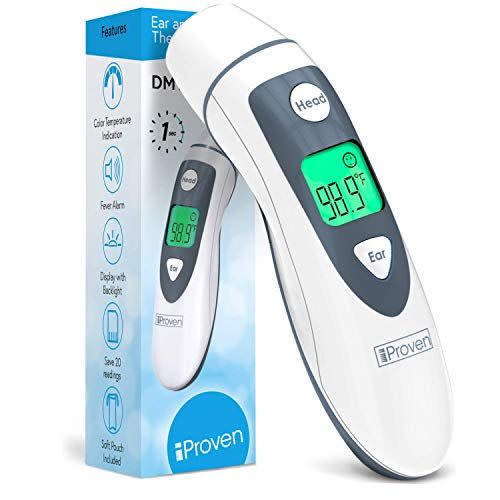
2) Ear and Forehead Thermometer
iProvèn
amazon.com
$29.95
This dual non-contact thermometer can take temperature readings from the forehead or ear, so it’s good for kids of all ages, especially squirmy toddlers. It delivers exceptionally fast readings, though as with all non-contact thermometers, you need to use it correctly to get the most accurate readings. A simpler device might be better if you’re not a gadget whiz.
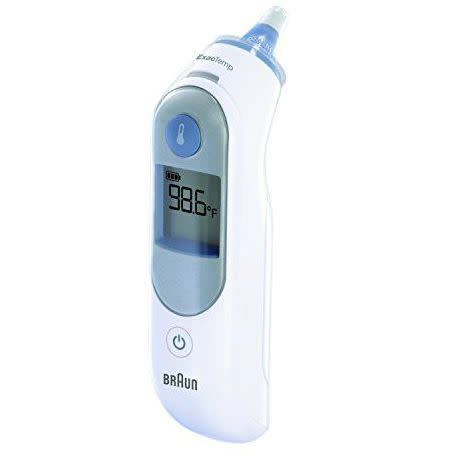
3) Thermoscan Baby Ear Thermometer
Braun
amazon.com
$41.86
Seconds can feel like an eternity when trying to get a temp reading for a sick kid, so we’re happy this in-ear options offers up readings in just a few. Our testers also found it very easy to use.
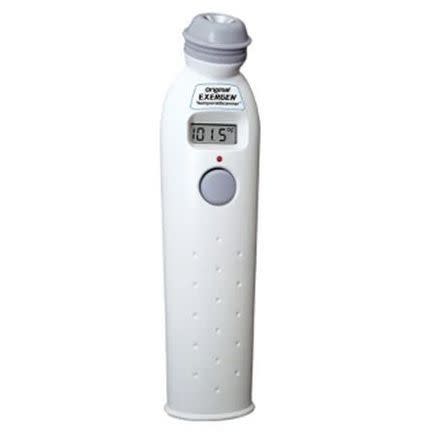
4) Temporal Scan Baby Thermometer
Exergen
amazon.com
$27.20
A great pick for when you want to quickly scan a sleeping child or one with an ear infection. Just scan the device across their forehead and you're set. Our testers noted that it can take a few tries to master the forehead swipe, but once you get the hang of it, the thermometer is very easy to use. Most of the 4,000-plus reviews on Amazon are either 4 or 5 stars, with many users praising the speed and convenience of the touch-free thermometer.
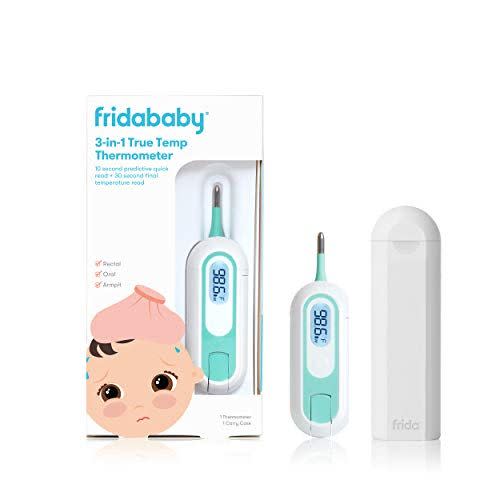
5) 3-in-1 True Temp Digital Thermometer
FridaBaby
amazon.com
$19.99
The Fridababy is another highly versatile thermometer, designed for rectal, oral or underarm use. Digital readings and the backlit screen mean you won't have to risk waking the baby by turning on the light.
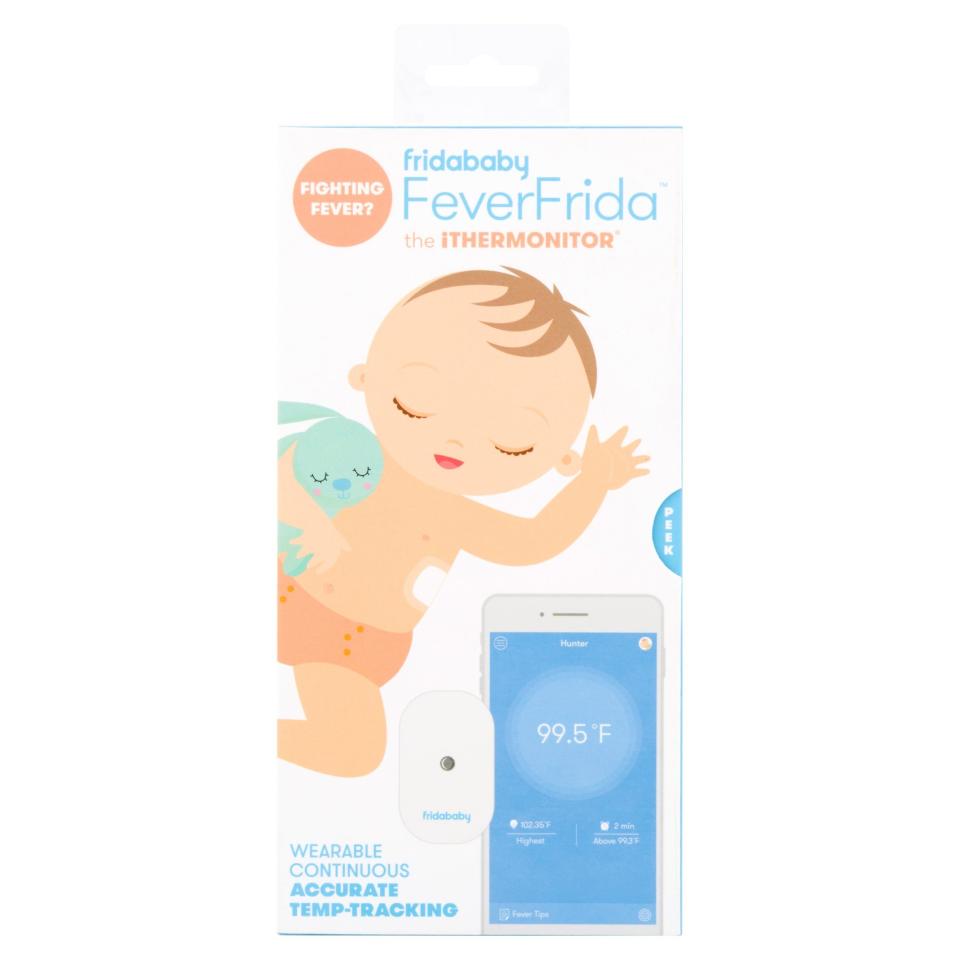
6) FeverFrida iThermonitor
FridaBaby
walmart.com
$64.99
Instead of having to constantly probe your sick child, use this patch to continuously track their temperature. It syncs up with your phone so you can monitor any changes over a 24-hour period.
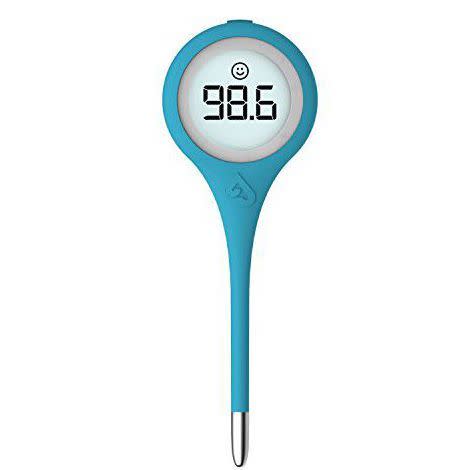
7) QuickCare Baby Thermometer
Kinsa
amazon.com
$24.99
This digital smart thermometer has Bluetooth built-in so you can easily connect to your phone to log readings, track symptoms and monitor medications. It's also suitable for oral, rectal or armpit use. The thermometer also features a fun Bubble game and Sesame Street mode to help fidgety kids stay still during readings.
Shop our best-of-the-test picks for baby.